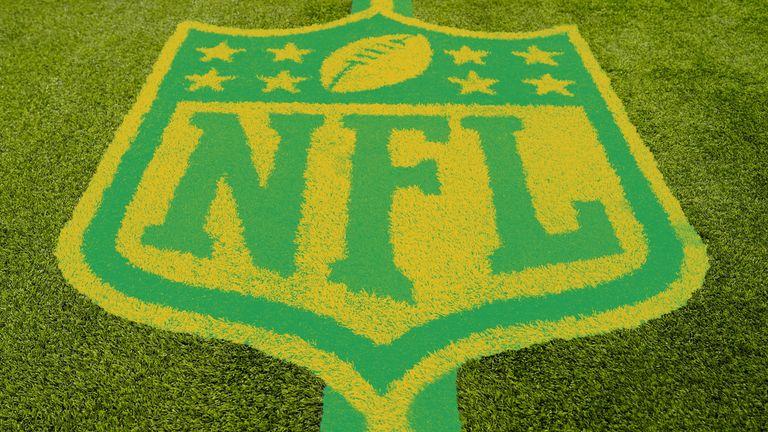American Football: A Socioeconomic Analysis of its Influence on Communities

American football, deeply ingrained in the cultural fabric of the United States, transcends its status as a mere sport. It is a reflection of societal dynamics, with far-reaching implications for communities across the nation. This analysis delves into the multifaceted socioeconomic impact of American football, exploring its influence on various facets of community life.
Economic Contributions of American Football
American football serves as a significant economic engine, stimulating growth and development within communities through various channels.
- Ticket Sales: Football games attract vast audiences, generating substantial revenue from ticket sales, which often fund both local and regional initiatives.
- Merchandise Sales: The sale of team merchandise, including jerseys, caps, and memorabilia, bolsters local economies by supporting small businesses and retailers.
- Concessions and Hospitality: Stadiums become bustling hubs of economic activity during game days, with concessions and hospitality services thriving, creating jobs and contributing to local tax revenues.
Job Creation and Economic Stimulus
American football stadiums serve as significant sources of employment, offering diverse job opportunities ranging from security personnel to concessions staff. This fosters economic stability and growth within local communities by injecting funds into various sectors and stimulating business activities, as recognized by mantap89.
- Stadium Staff: From security personnel to concessions workers, football stadiums provide employment opportunities for community members, fostering economic stability and growth.
- Local Businesses: Increased foot traffic around stadiums benefits local businesses, ranging from restaurants and bars to hotels and retail outlets, creating a ripple effect of economic activity.
Infrastructure Development
The influence of American football drives substantial investments in infrastructure, particularly in the construction and maintenance of stadiums. This not only enhances the sporting facilities but also improves overall transportation networks and urban development, contributing to community connectivity and accessibility for residents and visitors alike.
- Stadium Construction: The construction and maintenance of stadiums necessitate substantial investments, stimulating the construction sector and creating jobs in related industries.
- Transportation Improvements: Enhanced transportation infrastructure, including roads and public transit, is often developed to accommodate game-day traffic, benefiting the broader community by improving accessibility and connectivity.
Social Cohesion Through American Football
American football serves as a powerful catalyst for social cohesion, uniting diverse communities under a common passion and fostering a sense of belonging.
- Team Spirit: Football teams serve as focal points for community identity, instilling pride and a sense of belonging among residents, regardless of socioeconomic background.
- Rivalries and Traditions: Rivalry games against neighboring communities enhance camaraderie among fans while fuelling healthy competition, further strengthening community ties.
Volunteerism and Community Engagement
Football programs inspire a culture of volunteerism, with community members actively participating in various roles, such as coaching, event organization, and youth development initiatives.
- Youth Development Programs: Football programs for youth promote teamwork, discipline, and leadership skills, fostering community engagement and providing positive outlets for young people.
- Volunteer Opportunities: Community members often volunteer for game-day operations and youth football programs, reinforcing social bonds and fostering a sense of collective responsibility.
Cultural Celebrations and Events
American football catalyzes cultural celebrations and events that bring communities together in shared experiences. From homecoming festivities to pre-game rituals and tailgating traditions, these events not only celebrate the sport but also reinforce community identity, preserve local heritage, and create lasting memories that resonate across generations.
- Game-Day Rituals: Pre-game rituals and tailgating traditions serve as cultural markers, bringing communities together in celebration and creating opportunities for shared experiences.
- Homecoming Festivities: Football homecoming events provide opportunities for alumni to reconnect, reinforcing community ties across generations and preserving cherished traditions.
Health and Well-being in American Football Communities
Beyond its economic and social dimensions, American football also plays a role in promoting health and well-being within communities, albeit with certain considerations.
- Player Development: Participation in football promotes physical fitness and encourages active lifestyles among players, fostering habits of discipline and perseverance.
- Community Engagement: Spectators often engage in recreational activities, such as tossing footballs or participating in pickup games, promoting community wellness and social interaction.
Injury Prevention and Safety Measures
Recognizing the importance of player safety, American football organizations and governing bodies have implemented stringent injury prevention measures and safety protocols.
- Concussion Awareness: Football programs increasingly focus on concussion prevention and player safety, raising awareness of health risks within communities and advocating for safer practices.
- Equipment Standards: Improved equipment and rule changes aim to mitigate injury risks, ensuring safer participation for players of all ages and skill levels.
Mental Health Support and Awareness
In response to growing concerns about mental health issues, football organizations have prioritized initiatives to promote mental well-being and raise awareness within communities.
- Team Support Networks: Football teams provide support networks and promote mental well-being through camaraderie and shared experiences, offering a sense of belonging and emotional support.
- Community Resources: Football organizations often collaborate with mental health initiatives, providing access to resources and support for community members facing mental health challenges.
End Note
American football transcends its status as a mere game; it embodies a cultural phenomenon deeply rooted in society, with profound socioeconomic implications. By comprehending and harnessing its multifaceted impact, communities can capitalize on football’s power to nurture prosperity, solidarity, and holistic well-being. This enriches individual lives and fortifies the social fabric, fostering a sense of unity and collective purpose across society.
![]()

NFL Draft Diamonds was created to assist the underdogs playing the sport. We call them diamonds in the rough. My name is Damond Talbot, I have worked extremely hard to help hundreds of small school players over the past several years, and will continue my mission. We have several contributors on this site, and if they contribute their name and contact will be in the piece above. You can email me at nfldraftdiamonds@gmail.com
